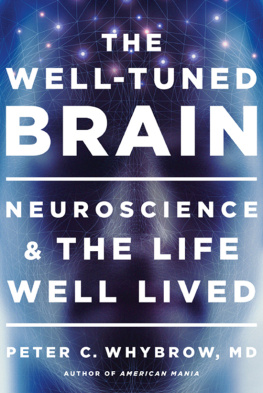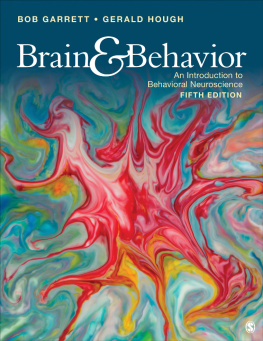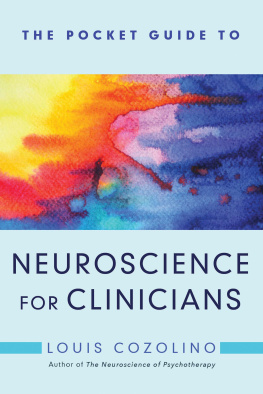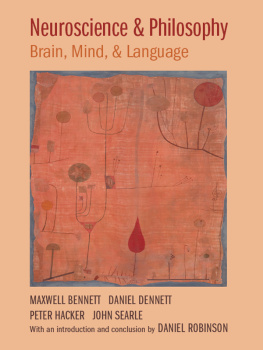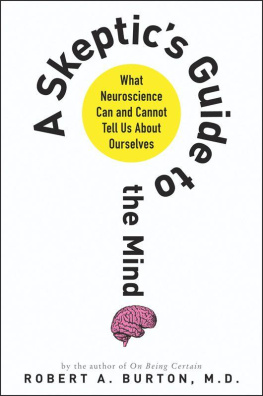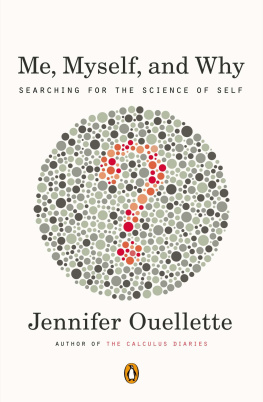
Also By Peter C. Whybrow, MD
American Mania: When More Is Not Enough
A Mood Apart: The Thinkers Guide to Emotion and Its Disorders
The Hibernation Response: Why You Feel Fat, Miserable, and Depressed from October Through Marchand How You Can Cheer Up Through Those Dark Days of Winter (with Robert Bahr)
Mood Disorders: Toward a New Psychobiology (with Hagop S. Akiskal, MD, and William T. McKinney, Jr., MD)
Copyright 2015 by Peter C. Whybrow, MD
All rights reserved
First Edition
For information about permission to reproduce selections from this book, write to
Permissions, W. W. Norton & Company, Inc., 500 Fifth Avenue, New York, NY 10110
For information about special discounts for bulk purchases, please contact
W. W. Norton Special Sales at specialsales@wwnorton.com or 800-233-4830
Book design by Lovedog Studio
Production managers: Devon Zahn and Ruth Toda
ISBN 978-0-393-07292-1
ISBN 978-0-393-24847-0 (e-book)
W. W. Norton & Company, Inc.
500 Fifth Avenue, New York, N.Y. 10110
www.wwnorton.com
W. W. Norton & Company Ltd.
Castle House, 75/76 Wells Street, London W1T 3QT
I FIRST BEGAN THINKING about the ideas that were to become The Well-Tuned Brain in 2008, in the wake of Americas ruptured housing bubble and the worldwide financial seizure that it provoked. American Mania had been published a couple of years earlier and essentially predicted such a meltdown. But why, I asked myself, had the madness become so pervasive in Western culture? What were we thinking? Looking back, it defies common sense to believe that any economic system, but particularly a globalized market system, could indefinitely sustain itself on debt and speculation.
Amid the wreckage of subprime mortgages, easy money, and shifting weather patterns, I was not alone in my rumination. As the workaday treadmill slowed, and the collective anxiety mounted across Europe and in the United States, the mood was one of angry, confused reflection. In the public forum, perhaps in fright, perhaps in hope, we thrashed about searching for villains and plausible causes. And rogues there were, with the bankers being high on most lists, but self -reflection and discussions around the part we each may have played in the economic debacle were remarkably muted. In the main we preferred to find explanation out there, apart from our personal behavior and our responsibilities as informed citizens.
This intrigued me. The foibles of humankind are no secret but are written large in the history of our species. Nor are our assets obscure when it comes to thinking about who we are. One of the amazing things about modern times is that we have made great strides in understanding the biology of the brain and its role in shaping human culture. And yet when thinking about our social and political organization, we tend to ignore such insights, especially in commanding our own behavior. The Well-Tuned Brain is my effort to highlight how knowledge of science can improve self-understanding and how such insights can serve all of us, and the common good, going forward. But that is only one part of my agenda. As intensely social creatures, we have many qualities, some that we are in danger of forgetting, which are essential to living together constructively in the frenetic, information-saturated world that we have created for ourselves. My effort is to bring these diverse elements together, integrating history, psychology and neuroscience with sociocultural insight and economic commentary, to craft a cohesive story upon which to build a balanced future vision.
I am fully aware that this is an ambitious undertaking. As such, I temper my ambition with humility. We still have much to learn about human behavior, and inevitably my analysis falls short. But I have learned over the years that it is easier to criticize than to constructto look back rather than forward. Hence, while I take full responsibility in attempting this synthesis, I make no apology.
Woodstock, Oxfordshire,
September 2014
Off Balance:
Surprised by Affluence
Man with all his noble qualities...
Still bears in his bodily frame the indelible stamp of his lowly origin.
Charles Darwin, The Descent of Man (1871)
WHEN THIS BOOK was in its infancy, I spent a year working with colleagues at the University of Oxford. We found lodging in Woodstock, a small village just a few miles outside Oxford, where the pastoral landscape is dominated by Blenheim Palace, the large country estate that is the home of the Churchill family. It was there in the early spring that I met Henry, a pheasant who had become a local celebrity.
Its no fun being a pheasant on an English country estate. This was particularly true that year. The winter had been long and hard, the earth was ice- and snow-covered, and the game hunters had taken their toll. On some days three or four hundred brace of birds had fallen to the hunters and their dogs. But not Henry, as he had been fondly named: this rooster was no gullible youngster. Henry was shrewd, with long and shiny leg spurs, suggesting that he was tough and canny enough to have endured a year or two despite the harsh conditions. And he was a handsome fellow, with his copper-colored plumage shining mottled and iridescent in the sunlight; his feathered helmet shimmered a forest green. In his strutting walk and regal bearing, he had the mark of a warrior. This bird was a survivor.
Then that spring came his downfall: Henry fell unexpectedly into affluence. His preferred hangout was a pasture by the lake, close to the neck of an old dam where the water cascaded into the river below. Over the winter the dam had been repaired, and new drainage fields had been built to better control the flow of water during the spring runoff. Late in the project, after the backhoes and trucks had disappeared, the groundskeepers reseeded the meadow. By early March all was complete. As the sun strengthened, daffodils thrust up their heads along the riverbank, the new-sown grass and clover germinated, and the worms and insects multiplied. For a pheasant recovering from a winter of privation, it was a banquet like no other.
When it comes to survival, game pheasants are no dumb birds. They run fast and fly low, and their staccato alarm ensures that most will take cover before youve even seen them. Theyre cautious in their habits, feeding early in the morning and again late in the afternoon, as the sun begins to wane. During the heat of the day most pheasants retreat to what the hunter calls loafing coverlight brush or tall grass that affords protection from predators and a little time for relaxation. Henry, however, in his delight at having discovered nirvana, began to ignore these survival principles. He commandeered the wealth of the newly sown field as his private preserve. There he was to be found each day, even at noon, fully exposed, head down, feeding away. Never was Henry seen to run; rather he strutted with head held high, wattles bobbing red against his purple throat.
Henry grew and grew; no longer sleek but of Pickwickian proportion, he gained notoriety as the largest pheasant many had ever seen. Visitors gathered to watch him feed. He began to rival the water cascade as an attraction to the park. Little boys threw pebbles to provoke him: he hardly noticed, intent on his self-indulgence. No screaming sprint into the thicket for Henry. It was as if he had written those signs around the reseeded field to warn away competitors, Newly planted area; please keep off. With a long winter behind him and the human predators at bay, Henry had become complacent, addicted to his personal preserve and the affluent life. Hes lost his common sense, has that there bird, advised a local countryman one afternoon as we stood together among a clutch of gawping visitors. If he dont kill himself, then the fox he will. He was right. Toward the middle of April Henry disappeared. Only a few days later, walking on the hill that overlooks the lake, I found a bloodied carcass and a fine set of wings. It was what was left of Henry; those long shiny spurs were unmistakable.
Next page
